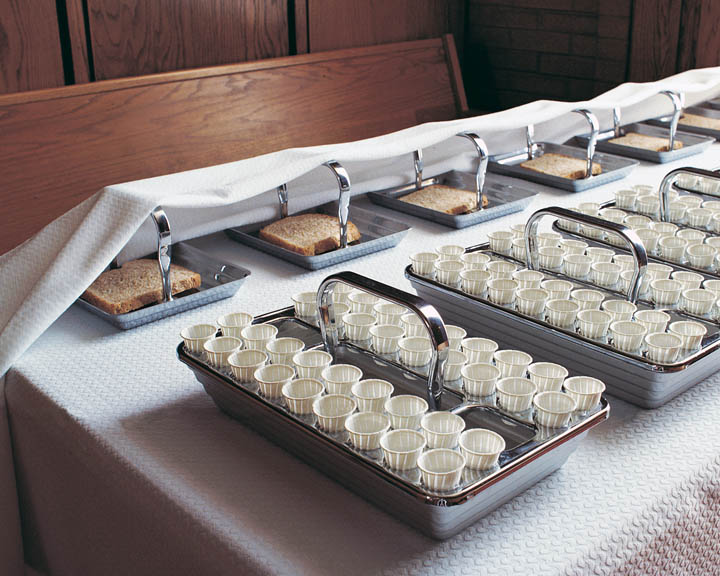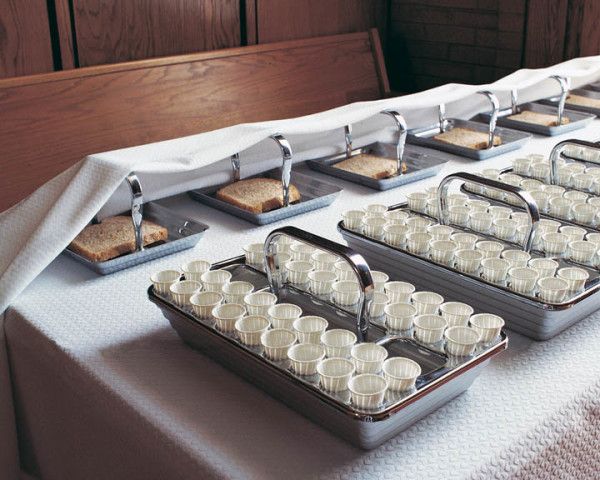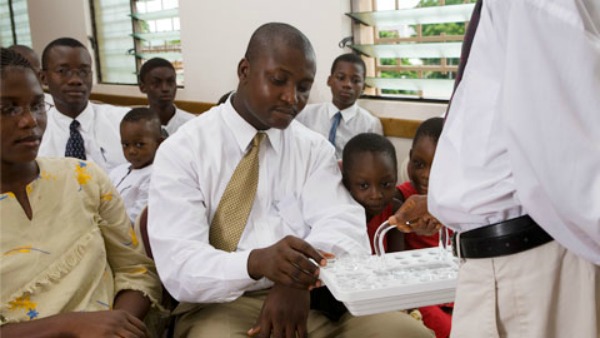Question
Gramps,
In 3 Nephi Jesus offers the sacrament to “all” including those who are not baptized yet, but it seems to me that most people in the Church think it’s wrong to partake unless one has been baptized. For example, when my daughter brings a friend to church who is not a member I let the friend choose to partake if she wants to because Jesus never denied anyone unless they were “unworthy” and I don’t see anything wrong with it; what is your understanding?
Lucia
Answer
Dear Lucia,
Thank you for your question. I hope it’s asked with increasing frequency as the members of the Church reach out more often to those not of our faith. I pondered your question for a time, then went to look for something official. I found very little. In Preach My Gospel: A Guide to Missionary Service, the sacrament (in relation to investigators) is mentioned only as part of one of the baptismal interview questions, and to explain that partaking is to renew our baptismal covenants (an important fact that bears reflecting on together with the scriptures and thoughts below) (see Lessons 2-4, and chapter 12).
The most direct answer I found was in the October 1972 New Era, written by “James E. Faust, Attorney, Regional Representative” – I think we can trust that it’s close enough to official. Were I to give a short answer, it would be to refer someone to this article. However, I feel that I benefited from the time spent pondering the question and hope that you and others may benefit from my conclusions.
The Savior’s Appearance to the Nephites
You mentioned the account of Jesus ministering the sacrament to the Nephites. We should be careful in our assumptions about this account. The death of Christ happens at the start of the 34th year of the Nephite calendar (see 3 Nephi 2:7-8, 3 Nephi 8:5). However, Christ doesn’t show himself to them until the end of the 34th year (3 Nephi 10:18-19). In the meantime, many repent and are baptized (3 Nephi 7:23-26). In 3 Nephi 11 (well after the destruction, after even more people have had time to repent and be baptized), we read this:
1 And now it came to pass that there were a great multitude gathered together, of the people of Nephi, round about the temple which was in the land Bountiful; and they were marveling and wondering one with another, and were showing one to another the great and marvelous change which had taken place.
2 And they were also conversing about this Jesus Christ, of whom the sign had been given concerning his death.
3 And it came to pass that while they were thus conversing one with another, they heard a voice…
These were not likely the wicked standing around the temple talking about Jesus Christ and hearing the voice of God. They were more likely the most righteous of those who survived. The future twelve disciples were probably among them. I expect that regardless of the need for a new baptism, these folks were all known by Christ to be worthy to partake of the sacrament, and He knew they would be baptized. His knowledge is perfect and all his acts righteous.
We, on the other hand, do not have perfect knowledge. Therefore, we should be prudent when deciding things such as this. I don’t believe the example in 3 Nephi 17 gives carte blanche for just anyone to partake of the sacrament, nor for just anyone to casually decide who should or should not partake. This event was sacred and holy. The people involved had been healed – remember that in the New Testament accounts of healing, forgiveness of sins generally comes with physical healing.
Christ’s Instructions Regarding the Sacrament
With this background in mind, I considered Christ’s instructions to his disciples regarding administering the sacrament. It’s found in 3 Nephi 18:4, 11:
5 And when the multitude had eaten and were filled, he said unto the disciples: Behold there shall one be ordained among you, and to him will I give power that he shall break bread and bless it and give it unto the people of my church, unto all those who shall believe and be baptized in my name.
11 And this shall ye always do to those who repent and are baptized in my name; and ye shall do it in remembrance of my blood, which I have shed for you, that ye may witness unto the Father that ye do always remember me. And if ye do always remember me ye shall have my Spirit to be with you.
Here, it seems quite clear that it is to be administered to those who are baptized. But there’s room enough to interpret it as those who will be baptized – something which requires us to trust the investigator’s expressed intent or desire.
The Sacredness of the Sacrament Ordinance
As I pondered this, I was impressed with the sacred importance of this ordinance. In several places, we find words similar to those in 3 Nephi 18:29-29:
28 And now behold, this is the commandment which I give unto you, that ye shall not suffer any one knowingly to partake of my flesh and blood unworthily, when ye shall minister it;
29 For whoso eateth and drinketh my flesh and blood unworthily eateth and drinketh damnation to his soul; therefore if ye know that a man is unworthy to eat and drink of my flesh and blood ye shall forbid him.
We cannot simply dismiss such strong language as not counting until after baptism. And while I have heard many members express many opinions, for myself, I have concluded that any person, member or not, should prepare for partaking of the sacrament. That preparation might include the following elements (as applicable):
- Helping a non-member prepare should happen before the meeting rather than in rushed whispers during the sacrament hymn.
- One should understand what the sacrament represents (renewal of baptismal covenants the investigator has yet not made).
- One should understand the seriousness, including the the Lord’s instructions and above warning.
- One should understand that there is no shame in refraining – indeed, that it would most likely be seen as respectful for a non-member to refrain.
- One should spend time in study and prayer considering their attitude about the baptismal covenant and the express conditions in the sacrament prayers, as well as repenting of sins.
- For investigators, one may wish to inquire of the key holder what he would have them do.
All of this planning and preparation would require much forethought and perhaps more time than many may wish to invest, however, given the sacred importance of our covenants, and the seriousness of damnation, I think most of us can afford to invest the time.
Conclusion
My experience has been that frequency can lull one into treating the frequent event casually, that it can be difficult to remember the solemn nature of this ordinance, until it’s just “those trays that get passed around every Sunday”. And if we forget the sacredness of the event, we may think “it’s no big deal” when someone new asks about partaking. We may not even realize before the Sabbath that we should help those we invite to prepare for what will take place. But it seems to me that it’s a pretty big deal, and that to help another prepare is to bless them. I pray that we will all prepare ourselves as best we can for the sacrament ordinance, and that we will reach out as you and your daughter have, to invite others to come and join with us.
Gramps







